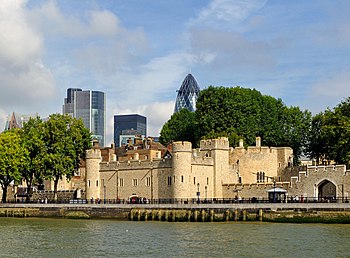
Back علم الاجتماع التاريخي Arabic Tarixi sosiologiya Azerbaijani Гістарычная сацыялогія Byelorussian Гістарычная сацыялёгія BE-X-OLD Historická sociologie Czech Historisk sociologi Danish Historische Soziologie German Sociología histórica Spanish جامعهشناسی تاریخی Persian Sociologie historique French

| Part of a series on |
| Sociology |
|---|
 |
Historical sociology is an interdisciplinary field of research that combines sociological and historical methods to understand the past, how societies have developed over time, and the impact this has on the present.[1] It emphasises a mutual line of inquiry of the past and present to understand how discrete historical events fit into wider societal progress and ongoing dilemmas through complementary comparative analysis.[2][3]
Looking at how social structures are changed and reproduced, historical sociology strives to understand the visible mechanisms and hidden structures that hinder certain parts of human development, whilst allowing other parts to thrive.[4] Throughout this, it challenges the ahistoricism of modern sociology as a discipline,[5][6] of the limited engagement with the past in studying social structures, whilst simultaneously critiquing the disengagement of historical study with the differences between societies and the broader social patterns between historical events.[4][7]
This interdisciplinary field operates within a spectrum between history and sociology with a 'sociology of history' residing at one end and a 'history of society' residing at another. A diverse range of people can be found throughout this spectrum that explore history through a sociological lens compared to others that dissect society through its historical events.[8] Although valid lines of research, they are based on singular disciplinary approaches and are reductionist in nature. In the middle of this spectrum historical sociology can be found that works to intertwine these mono-discipline efforts into an interdisciplinary approach.
- ^ Scott, John (2014). A dictionary of sociology (4 ed.). Oxford. ISBN 978-0-19-176305-2. OCLC 910157494.
{{cite book}}: CS1 maint: location missing publisher (link) - ^ Smith, Dennis (1991). The rise of historical sociology. Cambridge: Polity. ISBN 0-7456-0435-8. OCLC 59812746.
- ^ Granger, Frank (1911). Historical sociology : a textbook of politics. London: Methuen & Co. p. 26.
- ^ a b Smith, Dennis (1991). The rise of historical sociology. Cambridge: Polity. ISBN 0-7456-0435-8. OCLC 59812746.
- ^ Abbott, Andrew (1991). "History and Sociology: The Lost Synthesis". Social Science History. 15 (2): 201–238. doi:10.2307/1171415. JSTOR 1171415.
- ^ Aminzade, Ronald (1992). "Historical Sociology and Time". Sociological Methods & Research. 20 (4): 456–480. doi:10.1177/0049124192020004003. ISSN 0049-1241. S2CID 145310789.
- ^ Lachmann, Richard (2013). What is historical sociology?. Cambridge: Cambridge University Press. ISBN 978-0-7456-6008-0. OCLC 828181044.
- ^ Delanty, Gerard; Isin, Engin F. (2003). Handbook of historical sociology. London: SAGE. ISBN 1-84860-823-3. OCLC 431994038.